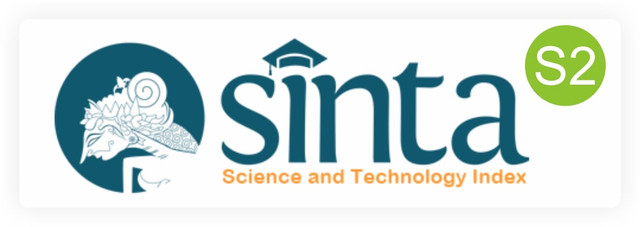EVALUASI ADVERSE DRUG REACTION ANTIDIABETES BERDASARKAN ALGORITMA NARANJO DI BANGSAL RAWAT INAP RS PKU MUHAMMADIYAH YOGYAKARTA PERIODE DESEMBER 2011-JANUARI 2012
DOI:
https://doi.org/10.12928/pharmaciana.v2i2.670Keywords:
Diabetes Mellitus, Adverse drug reaction, Naranjo algorithmAbstract
This study is aimed to evaluated the antidiabetic adverse reaction using the
Naranjo algorithm for diabetes mellitus patients in PKU Muhammadiyah Hospital
Yogyakarta for period December 2011-January 2012. This study used descriptive
method. The data was collected from the medical record and interviews from patients
with diabetes mellitus who had used antidiabetic drugs after 3 days. The data were
analyzed using the Naranjo algorithm. The results showed that during the period
December 2011-January 2012 there were 17 male patients and 14 female patients with
diabetes mellitus. The antidiabetic drugs that used to patients were metformin,
metformin combined with glibenclamide, metformin combined with insulin, the
combination with insulin and insulin glimepirid. Then, the study showed that Naranjo
algorithm method was not suitable for evaluation the antidiabetic adverse reaction for
diabetes mellitus patients in PKU Muhammadiyah Hospital in Yogyakarta for period
December 2011-January 2012, because from 10 questions on the Naranjo algorithm
there were only 4 questions that could be answered. It's because there was not data to
answer questions. Research on the side effects cohort method should be done with the
interview and patient monitoring.
Downloads
Published
Issue
Section
License
Authors who publish with Pharmaciana agree to the following terms:
- Authors retain copyright and grant the journal the right of first publication with the work simultaneously licensed under a Creative Commons Attribution License (CC BY-SA 4.0) that allows others to share the work with an acknowledgment of the work's authorship and initial publication in this journal.
- Authors are able to enter into separate, additional contractual arrangements for the non-exclusive distribution of the journal's published version of the work (e.g., post it to an institutional repository or publish it in a book), with an acknowledgment of its initial publication in this journal.
- Authors are permitted and encouraged to post their work online (e.g., in institutional repositories or on their website) prior to and during the submission process, as it can lead to productive exchanges, as well as earlier and greater citation of published work.


1.png)











